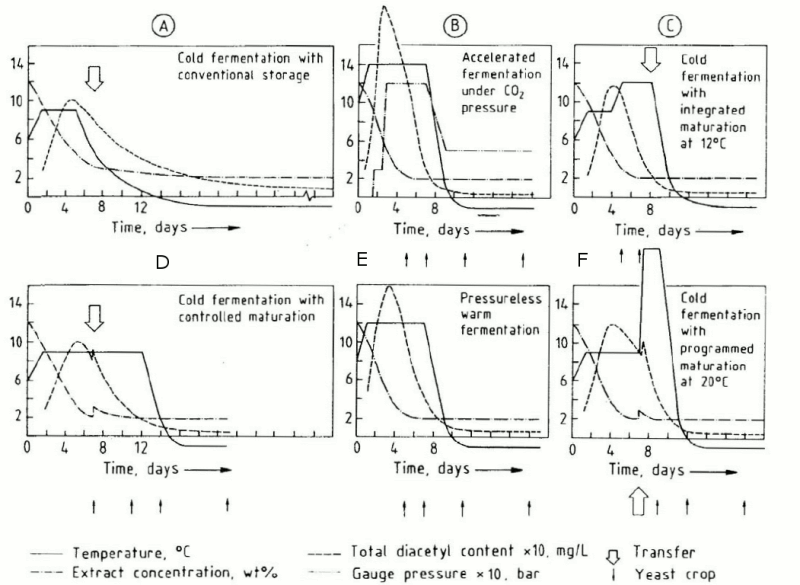I'm brewing a couple of lagers, but don't have a setup that will get much lower than 50 degrees for lagering. I have some friends who have a bar with a walk in, so I was thinking that I'd transfer the beer into a few borrowed corny kegs and lager the beer in their walk-in (if that's okay with them). The big issue is I'm not sure if moving the kegs back to my place after the lagering period for bottling will undo all of the settling of polyphenols that the lagering accomplished. Will they all just settle out again if I give them a few days before transferring to the bottling bucket?
Also for minimizing oxygen pickup on the transfer to the corny kegs do you guys just usually do the transfer with a siphon then purge a few times with CO2? Or do you fill the keg with CO2, then siphon and then repurge? Is it worth priming the keg with a bit of sugar so the yeast will take up any oxygen introduced?
-Anthony
Also for minimizing oxygen pickup on the transfer to the corny kegs do you guys just usually do the transfer with a siphon then purge a few times with CO2? Or do you fill the keg with CO2, then siphon and then repurge? Is it worth priming the keg with a bit of sugar so the yeast will take up any oxygen introduced?
-Anthony



